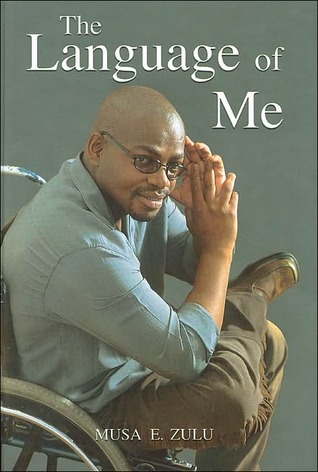From hospital wards to motivational stages, Musa Zulu’s 2004 memoir blends prose, sketches, and verse — a compact 116-page testament that’s now a hot pick in Cape Town’s public shelves. Picture Credits: Goodreads
By Duncan Mnisi
Book Review – Nearly two decades after its original release, Musa Zulu’s memoir The Language of Me is enjoying a powerful resurgence in Cape Town’s libraries. The book — a striking blend of autobiography, poetry, and hand-drawn sketches — is generating fresh conversations about disability, identity, and resilience among new generations of readers.
Zulu, a former road-safety director and motivational speaker, was only 23 when a devastating car accident left him paraplegic. His opening chapter, “Life After the Storm,” captures the rawness of that moment:
“I was very lonely in that hospital ward, a stranger in a strange world – isolated from my own identity and the vital energy of society.”
This honesty sets the tone for a memoir that refuses to gloss over the realities of hospital life — from confronting unfamiliar medical devices to navigating the emotional turbulence of physical trauma.
The book unfolds in two distinct parts. The first traces Zulu’s path from the accident through grief, adjustment, and ultimately acceptance. The second, “The Scrapbook of My Soul,” offers poems, sketches, and deeply personal reflections that chart his evolving self-awareness. Despite its brevity, critics praise the memoir for distilling profound insight into deceptively simple lines.
Zulu’s philosophical voice is one of the memoir’s greatest strengths. A widely quoted passage reads:
“When the burning flame of spirit is ignited, it will transform any soul — no matter what the circumstances.”
In another, he reflects on his singular place in the universe:
“I am … one of a kind … yet part of a unity. Within the small universe of my being is embodied the vast miracle of God’s creation.”
Cape Town librarians say the combination of imagery and prose gives the book wide appeal, particularly among students, disability-rights activists, and reflective readers. “It’s a quick read, but it stays with you,” one librarian notes, adding that Zulu’s illustrations convey emotions that words alone cannot.
Though more than twenty years old, The Language of Me remains as relevant as ever. Zulu’s candid portrayal of navigating a society that often treats disability as limitation offers a timeless message of purpose, courage, and self-creation. His stark line — “Paralysis… I was paralysed!” — underscores the shock of trauma while reminding readers that recovery is not a straight line but a journey.
For anyone seeking inspiration that fuses art, introspection, and spiritual depth, Musa Zulu’s memoir remains an essential and powerful read — now more accessible than ever in Cape Town’s public libraries.






